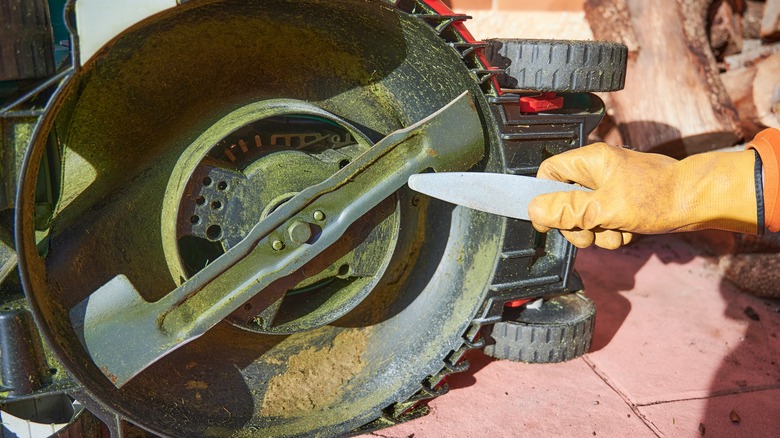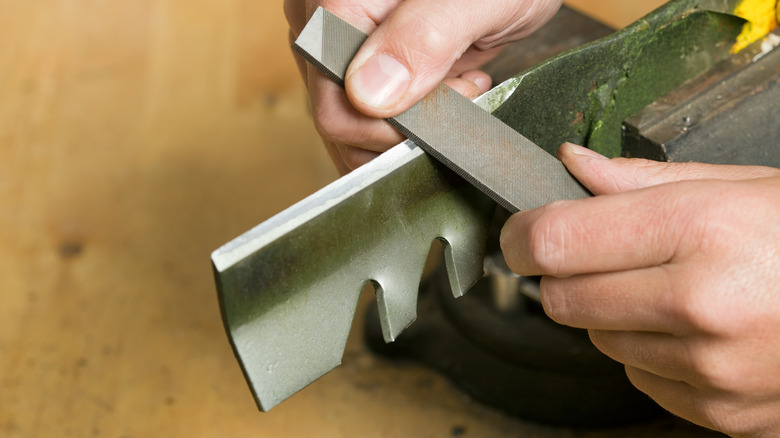The Worst Thing You Can Do When Sharpening Lawn Mower Blades
When it comes to lawn maintenance, every proud yard owner has to deal with sharpening their lawn mower blades. It might seem like the sharper the blade, the better, right? After all, isn't that what gives you that perfect, clean cut? Well, not quite! No matter your lawn mower type, oversharpening the blade is the worst mistake you can make.
So, why shouldn't you oversharpen your blades? Well, here's the thing: your lawn mower isn't a kitchen knife, which performs best when ultra-sharp. You don't need a blade sharp enough to slice a tomato mid-air. Making the blade too sharp can cause it to roll over when it hits the grass, preventing a clean cut. A too sharp blade is also prone to nicks and chips, so you'll be back at your sharpening station more often than necessary.
Another reason to avoid oversharpening is that it makes the blades dull faster. It might sound contradictory, but a blade sharpened too much loses its edge quickly. This shortens the life of your blades, meaning you may prematurely need to replace them, all because you tried to get that razor-sharp finish.
Other lawn mower blade sharpening mistakes to avoid
While oversharpening is a big mistake, it's not the only one people make. Another common issue is using the wrong angle when sharpening lawn mower blades. The blade needs to be sharpened at an angle of around 45 degrees. Sharpening at too shallow or steep an angle negatively impacts how the blade interacts with the grass, leading to a poor cut. Too shallow, the blade won't cut effectively; too steep, it will wear down faster. So, stick to that sweet spot.
Failing to balance the blade after sharpening is another rookie mistake. If one side of the blade is heavier than the other, it can cause your lawn mower to vibrate excessively, which can wear out your machine's motor faster. A wobbly blade doesn't just make your mower work harder; it also means your grass won't get a clean, even cut. Ensure you balance the blade after sharpening using a balancing cone or jig.
Lastly, applying too much pressure when sharpening can cause problems. Sure, you might be eager to get those blades sharp, but pressing too hard with the file or grinder can take off too much metal, weakening the blade. It can also overheat the metal, causing it to become brittle. The result? A blade that's more likely to break or chip when you're mowing, and that's a hassle you don't want. So, take it easy and apply a gentle touch -– your blades will last longer, and so will your mower.

